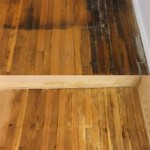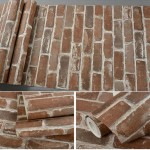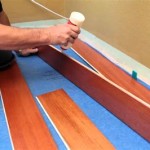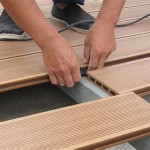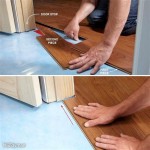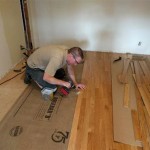Vinyl Plank Flooring and Addressing Uneven Subfloors
Vinyl plank flooring, celebrated for its durability, aesthetic versatility, and ease of installation, represents a popular flooring choice for both residential and commercial spaces. However, achieving a flawless and long-lasting vinyl plank floor installation hinges crucially on the condition of the subfloor. An uneven subfloor presents a significant obstacle, potentially leading to a range of problems affecting the appearance, performance, and longevity of the finished floor. Understanding the implications of an uneven subfloor and implementing appropriate corrective measures is therefore essential for ensuring a successful and satisfactory outcome.
The term "uneven subfloor" encompasses a variety of imperfections. These can include dips, humps, cracks, patches of differing height, or inconsistencies caused by previous flooring installations or structural settling. These variations, however small, can transmit through the vinyl planks, creating visible imperfections and compromising the integrity of the flooring system. The degree of unevenness that can be tolerated depends on the type of vinyl plank being installed and the manufacturer's recommendations. Generally, smaller variations can be accommodated with proper underlayment, while more significant deviations require more intensive remediation.
Failing to address an uneven subfloor prior to vinyl plank installation can result in several detrimental consequences. The most obvious is aesthetic imperfections. The planks may not lie flat, resulting in visible waves, bumps, or gaps between planks. This detracts from the overall appearance of the flooring and diminishes the perceived value of the space. Furthermore, an uneven subfloor can place undue stress on the locking mechanisms of the vinyl planks, especially in floating floor installations. This can lead to premature wear and tear, potential joint separation, and even cracking or breaking of the planks over time.
The performance of the underlayment, if used, can also be compromised by an uneven subfloor. Underlayment is designed to provide cushioning and sound absorption, but its effectiveness is reduced if it is compressed unevenly. This can result in inconsistent levels of comfort and noise reduction throughout the floor. In severe cases, the uneven pressure can even damage the underlayment itself, leading to further problems.
Identifying and Assessing Subfloor Unevenness
Before undertaking any vinyl plank installation, a thorough assessment of the subfloor is crucial. This involves both visual inspection and the use of appropriate tools to identify and quantify any unevenness. The initial visual inspection should focus on identifying obvious dips, humps, cracks, and other irregularities. Pay particular attention to areas where there are transitions between different types of subfloor materials or where there have been previous repairs.
Following the visual inspection, it is necessary to use tools to accurately measure the extent of any unevenness. A long, straight edge, such as a level or a metal ruler, is an indispensable tool for this purpose. By placing the straight edge on the subfloor and using a feeler gauge to measure the gap between the straight edge and the subfloor surface, one can determine the depth of any dips or the height of any humps. This process should be repeated across the entire subfloor, taking measurements at regular intervals to create a comprehensive map of the surface irregularities.
A laser level can also be used to detect and measure variations in height across the subfloor. This tool projects a laser line across the surface, allowing for quick and accurate identification of any areas that are not level. In some cases, a self-leveling compound can be used to fill in low spots and create a smooth, even surface. If significant variations are detected, it may be necessary to consult with a professional flooring installer to determine the best course of action.
The manufacturer's recommendations for the vinyl plank flooring should be consulted regarding the allowable tolerance for subfloor unevenness. This information will typically be found in the installation instructions or the product specifications. Exceeding these tolerances can void the warranty and compromise the performance of the flooring. Generally, a tolerance of 3/16 of an inch over a 10-foot span is considered acceptable, but this can vary depending on the specific product.
Addressing Unevenness with Self-Leveling Compound
Self-leveling compound is a cementitious mixture designed to create a smooth and even surface on concrete, plywood, and other subfloor materials. It is a popular choice for addressing minor to moderate unevenness in subfloors prior to installing vinyl plank flooring. The compound is typically mixed with water according to the manufacturer's instructions and then poured or pumped onto the subfloor. Its fluid consistency allows it to flow into low spots and level out uneven areas, creating a flat and uniform surface for the flooring installation.
Before applying self-leveling compound, it is essential to properly prepare the subfloor. This involves cleaning the surface thoroughly to remove any dirt, dust, grease, or other contaminants that could interfere with the adhesion of the compound. Any loose or crumbling material should be removed, and any cracks or holes should be filled with a patching compound. A primer is typically applied to the subfloor to improve the bond between the subfloor and the self-leveling compound. The primer is usually brushed or rolled onto the surface and allowed to dry completely before applying the compound.
When pouring self-leveling compound, it is important to work quickly and efficiently to ensure that the compound flows evenly and smoothly. The compound should be poured in a continuous stream, starting at the highest point of the subfloor and working towards the lowest point. A gauge rake or smoother can be used to help spread the compound and ensure that it levels out properly. It is important to follow the manufacturer's instructions regarding the thickness of the compound to be applied. Applying too much compound can result in excessive weight on the subfloor, while applying too little compound may not adequately address the unevenness.
After the self-leveling compound has been poured, it is important to allow it to dry completely before proceeding with the vinyl plank installation. The drying time will vary depending on the type of compound used and the ambient temperature and humidity. It is important to follow the manufacturer's instructions regarding the drying time to ensure that the compound is fully cured before installing the flooring. Once the compound is dry, it should be inspected to ensure that it has created a smooth and even surface. Any imperfections can be sanded down or filled with patching compound before proceeding with the flooring installation.
Using Underlayment to Mitigate Minor Imperfections
Underlayment plays a crucial role in the successful installation of vinyl plank flooring, particularly in addressing minor imperfections in the subfloor. While not a substitute for addressing significant unevenness, underlayment can effectively cushion and absorb slight variations, providing a smoother and more comfortable surface for the finished floor. This helps to prevent the vinyl planks from flexing or bending over minor imperfections, reducing the risk of damage and improving the overall aesthetics and longevity of the flooring.
There are various types of underlayment available, each with different properties and intended for specific applications. Foam underlayment is a popular choice for vinyl plank flooring due to its affordability, ease of installation, and good cushioning properties. Cork underlayment provides excellent sound absorption and insulation, making it a good choice for areas where noise reduction is a priority. Rubber underlayment offers superior durability and resilience, making it suitable for high-traffic areas or areas where heavy objects are likely to be placed on the floor.
When selecting underlayment for vinyl plank flooring, it is important to consider the manufacturer's recommendations and the specific requirements of the installation. The thickness of the underlayment is also an important factor. Thicker underlayment provides more cushioning and sound absorption, but it can also make the floor feel less stable. It is important to choose an underlayment that is appropriately thick for the type of vinyl plank flooring being installed and the condition of the subfloor. In some cases, a combination of different types of underlayment may be used to achieve the desired performance characteristics.
Proper installation of the underlayment is essential for its effectiveness. The underlayment should be rolled out smoothly and evenly over the subfloor, ensuring that there are no wrinkles or creases. The seams between the underlayment rolls should be taped together to prevent them from shifting or separating. It is important to follow the manufacturer's instructions regarding the installation of the underlayment to ensure that it performs as intended. In areas with significant unevenness, additional layers of underlayment may be necessary to provide adequate cushioning and support. However, it is important to avoid over-layering the underlayment, as this can make the floor feel unstable and compromise the performance of the vinyl planks.

Should We Be Concerned About Vinyl Plank Installed Over Uneven Floors

Vinyl Plank Flooring On Uneven Concrete

Vinyl Planks Installed Over Uneven Floor How Do I Fix It Now Doityourself Com Community Forums

Contractor Wants To Lay Vinyl Plank Over Uneven Subflooring

Diy Vinyl Plank On Uneven Floors

How To Install Vinyl Plank Flooring On Uneven Floor

Lvp Lvt And Engineered Hardwood Floors For Uneven Surfaces

Laying Vinyl Planks The Right Way Expert Guide By Fantastic Handyman

A Beginner S Guide To Installing Vinyl Plank Flooring Dumpsters Com

Flooring Installation Options For Uneven Floors Ub Hardwoods Blog
Related Posts

